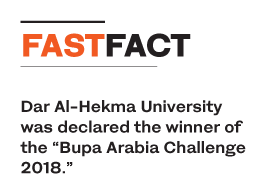Red Sea Gateway Terminal, Saudi Arabia’s leading container terminal operator and a subsidiary of the Sustainable Infrastructure Holding Company, has announced a strategic expansion into multi-purpose terminal operations, through newly awarded concessions at four existing strategic port facilities along the Red Sea. This significant milestone, in line with Saudi Arabia’s Vision 2030, enhances the Kingdom’s position as a global logistics hub and improves connectivity across international trade routes.
Under the newly signed 20-year concession agreements with the Saudi Ports Authority, known as Mawani, RSGT will assume operational responsibility for the following terminals:
-
Jeddah Islamic Port — General cargo and ro-ro terminals (to be consolidated into a single multi-purpose terminal)
-
King Fahd Industrial Port, Yanbu — Container operations will complement the existing dry and liquid bulk operations
-
Yanbu Commercial Port – Dry bulk and general cargo operations
-
Port of Jazan — General cargo and dry bulk operations
Together, these ports contribute an additional 13 km of quay length and 3.3 million square meters of terminal space to RSGT’s portfolio. Operations will be under the purview of RSGT’s new multi-purpose terminals business unit, which will manage all non-containerized cargo segments, including ro-ro, general cargo, project cargo, dry and liquid bulk, and livestock.
This strategic move has been made possible through the continued collaboration between RSGT and Mawani, whose commitment to public-private partnerships continues to play a pivotal role in transforming the Kingdom’s port sector and enabling world-class logistics services.
RSGT expects to invest a minimum of SR1.6 billion ($418 million) over the 20-year concession period, with SR700 million allocated for expenditure within the first five years of the concession period. These investments will focus on upgrading infrastructure, deploying advanced equipment, and introducing smart technologies to elevate all four terminals to world-class standards.
The projected average annual throughput includes: 3 million tons of general cargo, 13 million tons of bulk cargo, 13.5 million tons of liquid bulk, 710,000 ro-ro units (vehicles), and 8 million head of livestock.
RSGT will also pursue container terminal development in Yanbu, further positioning it as a strategic regional logistics hub.
“Our expansion into multi-purpose terminals marks a milestone in the evolution of our strategic vision,” said RSGT CEO Jens Floe. “The additions to our portfolio and operations reflect our ongoing commitment to facilitating global trade, advancing economic diversification, and reinforcing Saudi Arabia’s increasingly important role in global supply chains. This investment also lays the foundation for the next phase of our growth strategy, as we expand our international footprint across all cargo segments.”
This expansion into non-containerized cargo handling at four new locations marks a significant step in RSGT’s continued growth and diversification. By broadening its service portfolio beyond container operations, RSGT is strengthening its position as a leading logistics player in the region and expanding its role across global logistics chain.
RSGT, the largest container terminal in Saudi Arabia and the Red Sea region, handled 3.1 million 20-foot equivalent units in 2024, a year negatively impacted by the ongoing Red Sea crises, with an annual capacity of 6.2 million TEUs at its flagship facility located at Jeddah Islamic Port.
In early 2024, RSGT’s associate company, Red Sea Gateway International, became Saudi Arabia’s first international terminal operator by launching operations at Chittagong Port in Bangladesh. The addition of four new multi-purpose terminals to RSGT’s portfolio further solidifies the Jeddah- based company’s position as a diversified and globally active leader in logistics.
 Following a strong competition between the teams, Dar Al-Hekma University won this year’s challenge and the possibility of getting their ideas implemented at Bupa Arabia.
Following a strong competition between the teams, Dar Al-Hekma University won this year’s challenge and the possibility of getting their ideas implemented at Bupa Arabia.














